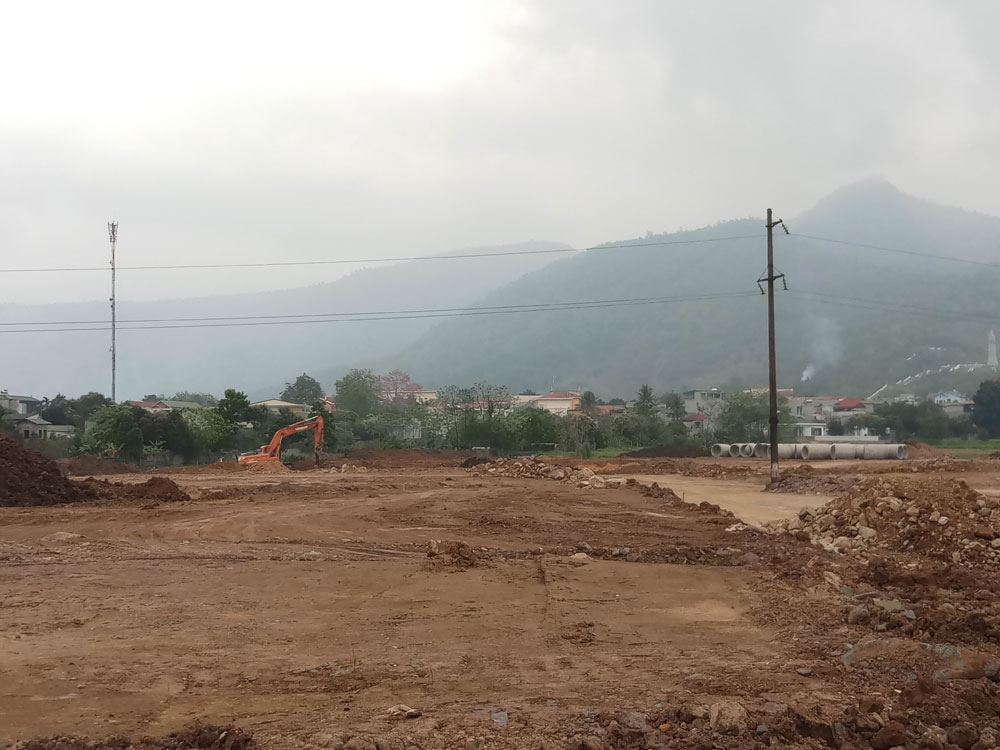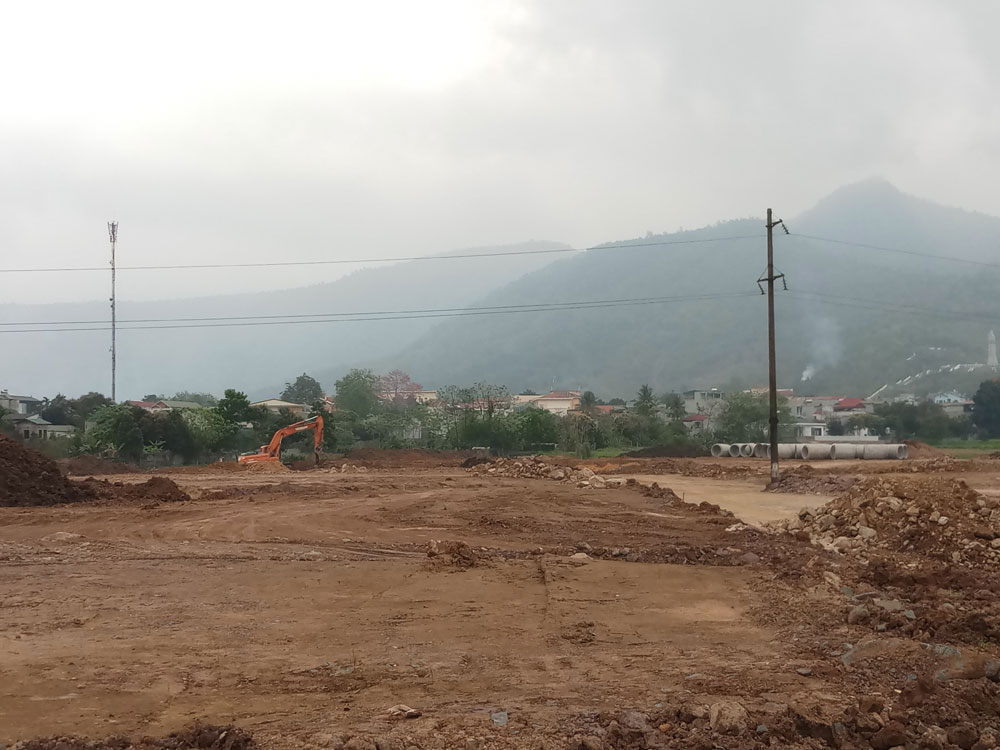(HBO) – Hoa Binh province was assigned by the Government to collect more than 4.15 trillion VND (181 million USD) for the State budget in 2021. The provincial People’s Council and People’s Committee also set a budget revenue target of 4.82 trillion VND. To realise those targets, local authorities and sectors have taken prompt action right since the year’s beginning to carry out Directive 03/CT-UBND, issued by the provincial People’s Committee on January 19, 2021, on the key tasks and solutions to implement the province’s socio-economic development, State budget collection, and defence – security plans for this year.
Infrastructure of Thong Nhat urban area in Thong Nhat
ward, Hoa Binh city, is being developed quickly by the investor. The project is
expected to become a source of revenue for the State budget.
Efforts are being made to enhance the management
of revenue sources and budget collection and achieve the twin targets of
facilitating socio-economic development and fighting against COVID-19.
Though the pandemic remains complex and has
directly affected production and business activities of enterprises and
taxpayers, Hoa Binh has recorded initial encouraging outcomes in State budget collection.
According to the provincial People’s Committee,
about 776.7 billion VND was collected for the State budget in the first two
months of 2021, including over 707 billion VND from domestic sources
(equivalent to 17 percent of the target assigned by the PM and 15 percent of
that set by the provincial People’s Council) and 68.9 billion VND from export –
import activities (equivalent to 34 percent and 28 percent of the respective
figures targeted by the PM and the provincial People’s Council).
In particular, the State budget revenue
collected by the taxation sector was equivalent to about 145 percent of the sum
recorded in the same period of 2020. This was attributed to the surge in
collection from some sources, mostly land use fees and the Hoa Binh hydropower
plant, which generated some 1.3 billion kWh of electricity in January –
February (up 77 percent year on year).
Nguyen Anh Tuan, deputy head of the Hoa Binh
Taxation Department, said the provincial People’s Council assigned the sector
to collect 1.7 trillion VND from land use fees and another 200 billion VND from
the liquidation of assets on land this year.
By the end of February, taxation agencies had
collected 148 billion VND from land use fees, respectively equal to 10 percent,
9 percent, and 228 percent of the targets set by the PM and the provincial
People’s Council and the revenue earned in the same period last year, he noted.
Despite certain encouraging outcomes, this
year’s budget revenue targets are relatively high, especially when the pandemic’s
negative impacts on socio-economic development, including businesses’
activities, are forecast to linger.
Therefore, the sector will take concerted and
drastic solutions to achieve the set targets, Tuan said, noting that it has
been assisting enterprises to tackle difficulties and recover production and
business activities, which will create momentum for economic growth and budget
revenue sources.
It has been investing efforts into managing
revenue sources and preventing losses; stepping up administrative reforms and
tax management modernisation to improve the province’s competitiveness and
attract investment; regularly overhauling administrative procedures relevant to
investment, construction, land, and business registration; and holding dialogues
with enterprises in different forms to deal with obstacles facing them and
their proposals in a timely manner.
Taxation authorities are also strengthening
internal discipline so as to promote its staff’s sense of responsibility
towards the assigned tasks, the official added./.



